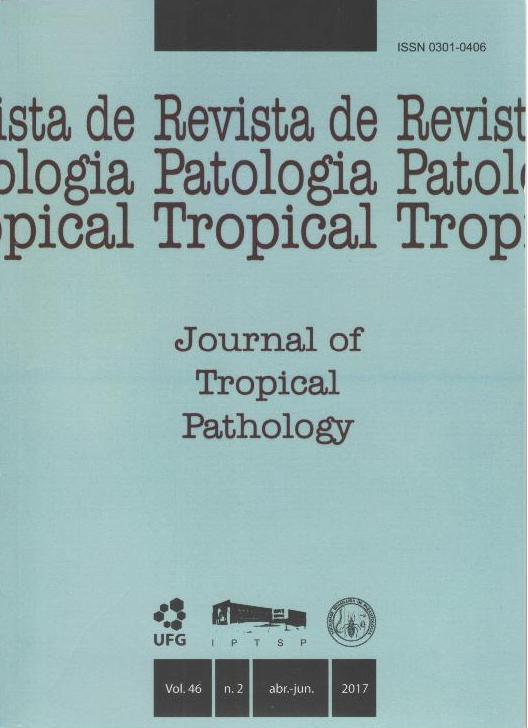ENTEROPARASITOSIS IN PUBLIC SCHOOLS IN BAHIA: PARASITOLOGY LEARNING
DOI:
https://doi.org/10.5216/rpt.v46i2.47543Keywords:
Health promotion, prophylaxis, school health.Abstract
Parasitic diseases hamper progress in underdeveloped nations, compromising child physical and cognitive development. In order to control intestinal parasites, the popularization of science may enable prophylactic measures. Questionnaires were used to assess the students’ knowledge, attitudes and practices. Health fairs were held as an educational tool and subsequently questionnaires on parasitic diseases and prevention were administered. Stool examinations were performed and infected students were treated. Prevalence of Entamoeba histolytica/ dispar, Ascaris lumbricoides, Trichuris trichiura was 7.1%, 5% and 3.5% respectively in the Anísio Teixeira Institute students and 7.2%, 8%, 3.6% in the Raymundo Matta School students in a suburb. The students at both schools displayed limited knowledge on parasitic disease prevention. The school participation in the prophylaxis of parasitic diseases, was not acknowledged by the students. Reviewing curricula is required, addressing themes related to health, possibly establishing partnerships with health services, universities and/or research centers with the effective involvement of the community performing articulated actions in different health districts, so that education will lead to community empowerment in regard to quotidian issues and improving public health conditions.Downloads
Downloads
Published
How to Cite
Issue
Section
License
The manuscript submission must be accompanied by a letter signed by all authors stating the full name and email address, confirming that the material has not been published or is under consideration for publication elsewhere, and agreeing to transfer copyright in all media and formats for Journal of Tropical Pathology. The authors will not be paid for published articles. They are solely responsible for the content of those articles, even if the Editor holds the right to adjust them to the norms of the journal.
The reviewers will not be paid for the peer review process.

